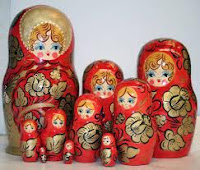My grandmother was an artist. I don’t know that I understood this fully, until I recalled an encounter with the soap jar. We think we know a person, a loved one passed on, through the words they’ve spoken or the love they’ve shared. But what of the Life only they’ve experienced, as the unique individuals that they were? There’s more to me, I can tell you, than that mass of dirty laundry staring at me from across the hall, which unfortunately I am in charge of, and that I will no doubt leave behind without a second glance when my time here has expired. A Life is truly in the details. It is in the malleable mosaic of living, and in the very existence of Self. We are complex creatures, difficult to figure out really. However, when we are still, when we are quiet, the minutia of Self are revealed – in a word, a smile, or even in an old jar sitting beneath a window’s ledge, smelling of an Irish Spring and soap.
Though certainly skilled in her more mundane, household duties – my grandmother could snap a bean and hang a bed sheet out to dry with style and speed – it is a treat for those of us who love her, each and every time, we happen across those memories we know to be, authentically Helen. In a sagging cardboard box overflowing with well-used sewing patterns smelling of old newsprint and attic, or occasionally in the impossibly small-and-perfect embroidery she once created, or even in an old pencil sketch of song birds perched atop a “Good Evening”, our family still marvels at her brilliance and her flair for thoughtful ingenuity in the simplest of things.
My grandmother’s most impressive talents, however, lay hidden in her knack for collecting and repurposing just about anything. Snug drawers, littered shelves, and nooks-and-crannies neatly housed rusty old nails pulled from splintered old barn wood, bits of fabric (so meager in size, that Hunca Munca herself would turn up her nose), stamps and greeting cards and pressed paper napkins – pencil stubs, colored glass and all things pink-and-pretty. In each of these things, these “…wagon wheel, Roy Rogers, garagesale…” things, we are given a glimpse into this simply-complex mosaic that was her Life.
~
So, who saves nasty old soap in a jar, I asked myself years ago, wavering then between my good sense and snobbery. I stepped into her kitchen to ask her the same, where she stood rifling through a drawer in the sideboard.
“Scarlett, bring those young eyes of yours over here and see if you can’t find a rubber band in that drawer.” She straightened no more than three square cards with matching envelopes, which she held in her hand. “I want you to put these in your suitcase and take them home to Missouri when you leave.”
I closed my mouth, and quickly handed her a large silver paper clip resting on top of a pile of pens, some sort of glue or grease in a crimped tube, and a small flashlight.
She resumed her search, “Let’s find a rubber band to put around them, so they stay nice.”
Her eyes looked at me then, to the jar I still held in my hand, and then back to the task ahead of her. “Go get a small paper bag off the back porch, behind the tool box, and we’ll scrape some of that soap into it for your family.”
‘Seriously,’ I laughed inside – so hard, it was difficult to keep my nostrils from flaring and tears escaping. I could just see the look on my husband’s face as I handed him a clean towel, and the jar, before his morning shower.
“For what purpose,” I muttered under my breath, disbelieving. It became blaringly obvious; there was only one thing to do. Put it back where you found it, Scarlett, and nobody gets hurt.
It was too late for that. She had heard my protestations. “You have the energy and the know-how – why don’t you take it home for me and see what pretty little soaps you can make out of it, and give them as gifts this Christmas.”
“Thanks, Grandma,” I answered over my shoulder, “but I don’t think we need any more soap right now.” I quickly replaced the quart canning jar beneath the windowsill and turned to see her grinning at me from the door. (She was much faster than she looked.)
“Now, that’s perfectly good soap,” she assured me, deftly stretching the thin, elastic band she’d found in another drawer, over a sleeping fawn painted in sepia tones. “That’s the trouble with this world today. People just toss things out when there’s plenty of good use to be had in them.”
We stood there a moment or two, before she gave in, gazing at the soap jar beneath the window. I suppose, if I had looked closely enough then, I might have noticed how daylight played on the splashy hues of pink pastels, and variegated greens, and how the warm Kentucky sun danced along the creamy slivers of white behind the glass. Had I given it time to see it as anything other than used up bits, perhaps in the perfumed scent of a rose or the clean scent of a manly Irish Spring, I might have seen the beauty in such a thing, possibly even shared her vision – if I were quiet enough, still enough.
I know now, the eagerness and the love behind the grin; that we all might see the wonder and the beauty and the artistry she left behind, in a perfectly good mosaic.









































